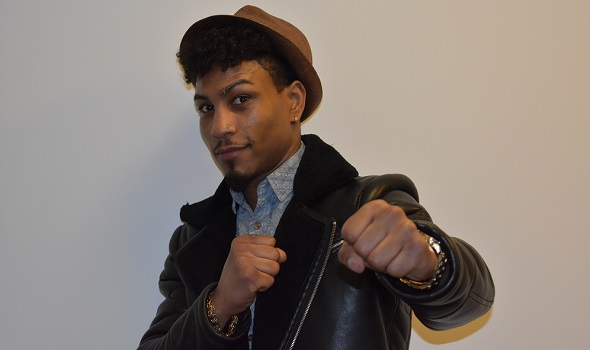He fought for England but is not allowed to stay.
He fought for England but is not allowed to stay.

Bilal Fawaz is a champion in the ring “but I need that one thing that will unlock everything,” he told Migrant Voice, “that thing that allows you to live as a normal person.”
He represented England as a boxer but he's not allowed to stay here.
That's why his biggest fight is not against adversaries in the ring but against Home Office rulings that he must go home.
But Kelvin, as he is known, says he's already home.
“This country is my home. I have no other place. I speak like a British. I’m a national champion. I represent the country. I don’t know anything about Nigeria.”
Nigeria was where his parents lived, though his mother was from neighbouring Benin and his father from Lebanon. They sent him to England when he was 14, but he says he was mistreated and virtually enslaved.
He ran away and started getting into trouble, and was saved by a boxing club in London. The club saw potential and he saw opportunity. He turned his life around, won fights and titles, fought half a dozen times for what is now his country, which was pleased to have a champion.
The Home Office saw neither potential nor opportunity. It rejected his claim to be stateless, because Nigeria didn't accept him as a national since neither of his parents were Nigerian, and locked him in Tinsley House Immigration Removal Centre.
“I am wearing my Team GB tracksuit in here, and everyone is looking at me, saying 'wow, it’s crazy how you boxed for a country and they locked you up in a detention centre”, he told The Mirror newspaper at the time.
He's out of the centre but he's still in no-man's-land, as the Home Office obdurately resists his applications.
Amazingly, as his striking appearance and confident fluency turned heads in the Migrant Voice office, it was clear that despite the way his career and life have been stymied (he is not allowed to earn a penny from his sporting prowess or from his other skills, such as music), and despite the cruelty of the way he has been treated, he is continuing to fight. If he is angry, he has managed to channel his feelings into the punchbag in the gym.
“I am past the stage of being mad,” he says. “I always see beauty in darkness. I feel that one day I will be successful. I want to train people. I’m also doing music. I’m trying to lay foundations.”
But there's a longing – for normality. When he walks around London, he says, “I look in windows, I look into people's homes, I want to be like that.”
It's not an unreasonable ambition, but as thousands of others have found, bureaucracy can be the toughest opponent of all.


